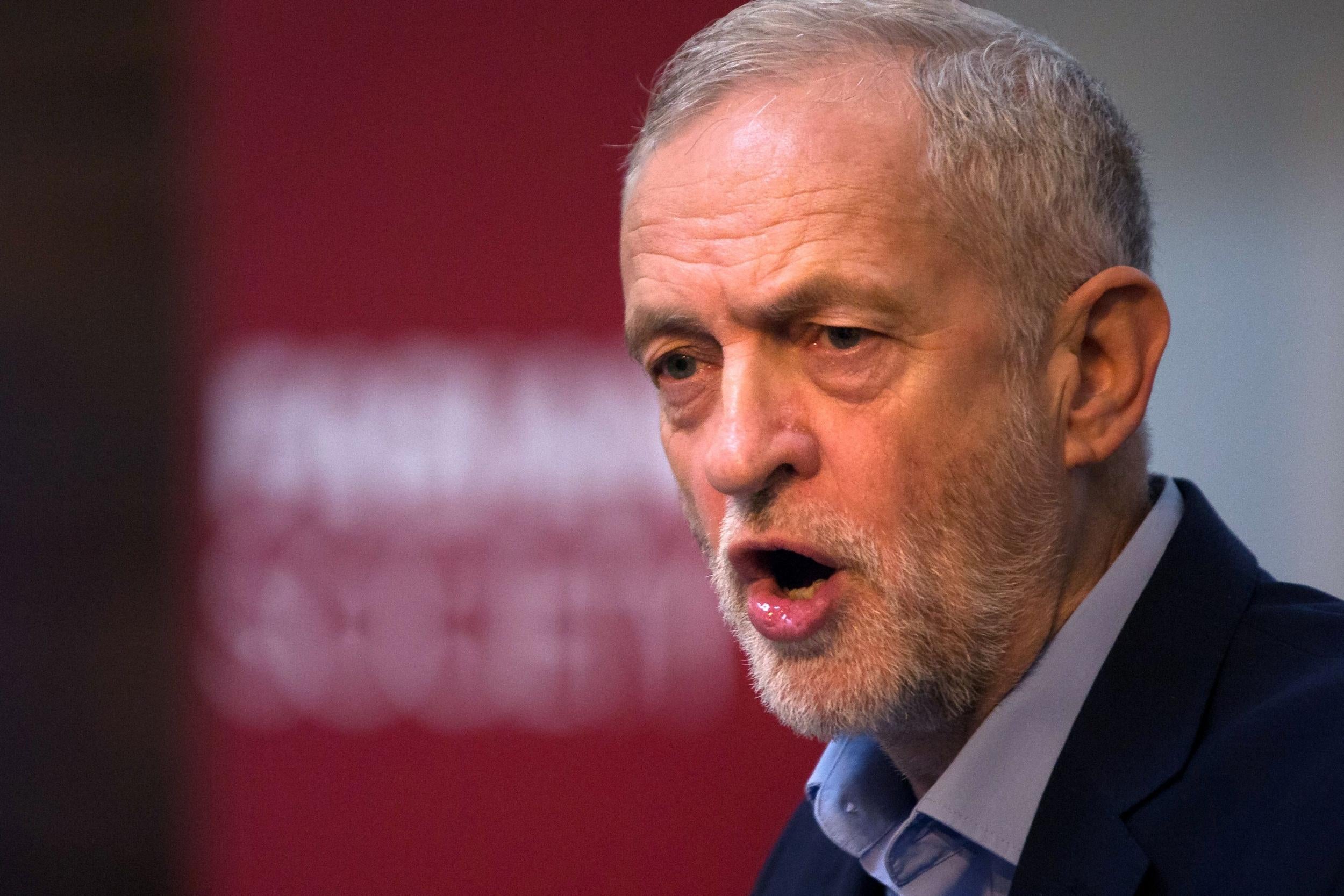Majority of public support Jeremy Corbyn's plans to cap bosses' salaries, poll suggests
Responding to the results, Mr Corbyn told The Independent: ‘Levels of inequality are grotesque and hurt the economy. While establishment commentators slammed our policy for tackling pay inequality, the public support it because they can see the system is rigged’

Your support helps us to tell the story
From reproductive rights to climate change to Big Tech, The Independent is on the ground when the story is developing. Whether it's investigating the financials of Elon Musk's pro-Trump PAC or producing our latest documentary, 'The A Word', which shines a light on the American women fighting for reproductive rights, we know how important it is to parse out the facts from the messaging.
At such a critical moment in US history, we need reporters on the ground. Your donation allows us to keep sending journalists to speak to both sides of the story.
The Independent is trusted by Americans across the entire political spectrum. And unlike many other quality news outlets, we choose not to lock Americans out of our reporting and analysis with paywalls. We believe quality journalism should be available to everyone, paid for by those who can afford it.
Your support makes all the difference.Jeremy Corbyn’s recent proposal to introduce a cap on executive wages at firms with government contracts is backed by the majority of the public, a new poll suggests.
Research for The Independent reveals that the government encouraging companies to introduce a wage cap for bosses earning more than 20 times that of their lowest paid worker is supported by 57 per cent of the public. Just 30 per cent of those surveyed disagreed, however, suggesting the government should not try to set a limit while 13 per cent said "don't know".
The results also found similar responses among all age groups and across all areas of the country, suggesting there is a high degree of enthusiasm for the policy, which was floated by the Labour leader in Peterborough. Even among Conservative voters, the proposal is supported by 47 per cent, with just over 40 per cent in opposition. The figure is much higher with those who voted Labour at the 2015 election, at 68 per cent.
Responding to the results, Mr Corbyn told The Independent: “Levels of inequality are grotesque and hurt the economy. While establishment commentators slammed our policy for tackling pay inequality, the public support it because they can see the system is rigged. We offer a complete break with a system rigged by an elite taking Britain for a ride”.
After a day of interviews and a major speech – dubbed a “day of chaos” by his critics – the Labour leader promised his party would look at introducing the pay ratio cap, set at 20:1, which would impose a ceiling of about £350,000 in any company paying the “living wage”.
However, the pledge did not go as far as he suggested in an interview earlier in the day. He had told Radio 4’s Today programme that he “would like there to be some kind of high earnings cap” but refused to be drawn on what level the cap should be set.
“I think the salaries paid to some footballers are simply ridiculous, some salaries to very high earning top executives are utterly ridiculous. Why would someone need to earn more than £50m a year?” he added. Danny Blanchflower, a former member of the leader’s economic advisory committee, said the idea was “idiotic”.
Later, a spokesman for Mr Corbyn attempted to clarify the policy, adding: “He mis-spoke in that interview. What Jeremy was talking about was pay ratios – that’s what we have been looking at.”
Those surveyed by ComRes for The Independent were asked whether their view was closer to either Mr Corbyn’s proposal or the statement: “It is up to employers how much they are prepared to pay their staff and the Government should not try to set a limit on it”. Just 30 per cent agreed with the latter, while 13 per cent responded “don’t know” and 57 per cent thought that the “Government should encourage companies, through measures like taxes and government contracts, to cap bosses’ salaries at a maximum of 20 times the company average”.
During his speech – described by many as his “relaunch” – the Labour leader added: “In the 1920s, JP Morgan, the Wall Street banker, limited salaries to 20 times that of junior employees. Another advocate of pay ratios was David Cameron. His government proposed a 20:1 pay ratio to limit sky-high pay in the public sector and now all salaries higher than £150,000 must be signed off by the Cabinet Office.
He said: “Labour will go further and extend that to any company that is awarded a government contract. A 20:1 ratio means someone earning the living wage, just over £16,000 a year, would permit an executive to be earning nearly £350,000. It cannot be right that if companies are getting public money that can be creamed off by a few at the top.”
ComRes interviewed 2,038 Great British adults online between the 11 and 13 January. Full details on the ComRes website
Join our commenting forum
Join thought-provoking conversations, follow other Independent readers and see their replies
Comments